#like there's literal predictors on YouTube making content
Explore tagged Tumblr posts
Text
I love how people hate on "annoying" women influencers instead of actually bad people, y'all are so misogynistic it's insane
#like there's literal predictors on YouTube making content#fuck misogynists#misogynism#feminist movement#feminism#misandry is valid#misandry is not real#proud misandrist#misandry#4b movement#i hate people#female manipulator#manic pixie dream girl#female hysteria#im just a girl#femcel#waifspo#lana del rey aka lizzy grant#nymph3t#hell is a teenage girl#girlblogging#girl interrupted#girlrotting#just girly posts#girlblogger#this is what makes us girls#esoteric girl#esoteric bimbo#fawn angel#femme fatale
105 notes
·
View notes
Text
Pluralistic: 13 Mar 2020 (The third Little Brother book, Where I write, stream global news, AT&T's CEO gets millions for his failures, Chelsea Manning freed, Katie Porter vs CDC, Trump's scientific nihilism, Covid-malware co-evolution, Siennese solidarity)

Today's links
Announcing the third Little Brother book, Attack Surface: And a new Little Brother/Homeland reissue, with an intro by Ed Snowden!
Where I Write: A column for the CBC that's really about how I write.
Stream 200+ global news channels: Each hand-picked, no registration required.
AT&T's CEO fired 23,000 workers and gave himself a 10% raise: Life on the easiest setting.
Chelsea Manning is free: But she's been fined $256K for refusing to testify to the Grand Jury.
Rep Katie Porter forces CDC boss to commit to free testing: Literally the most effective questioner in Congress.
Trump's unfitness in a plague: It's not because he's an ignoramus, it's because he's a nihilist.
Malware that hides behind a realtime Covid-19 map: Peter Watts' prophecy comes true.
Locked-down Siennese sing their city's hymn: A cause for hope in the dark.
This day in history: 2015, 2019
Colophon: Recent publications, current writing projects, upcoming appearances, current reading
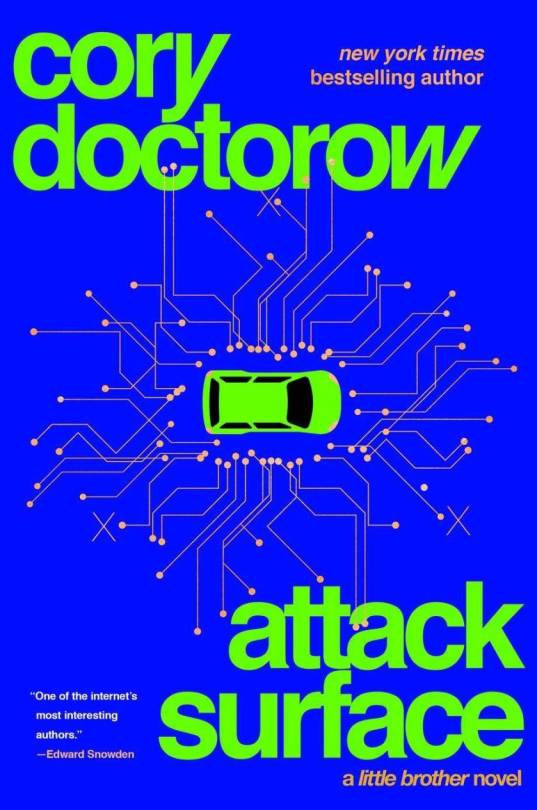
Announcing the third Little Brother book, Attack Surface (permalink)
Attack Surface is the third Little Brother book, coming out next October.
It's told from the point of view of Masha, the young woman who is Marcus Yallow's frenemy who works first for the DHS and then for a private spook outfit. It's a book about how good people talk themselves into doing bad things, and how they redeem themselves. It ranges from Iraq to the color revolutions of the former USSR, to Oakland and the Movement for Black Lives.
The story turns on cutting-edge surveillance and counter-surveillance: self-driving cars, over-the-air baseband radio malware, IMSI catchers, CV dazzle and adversarial examples, binary transparency and warrant canaries.
This week, I did a wide-ranging and deep interview with Andrew Liptak for Polygon about the book, the Little Brother series, the techlash, the tech workers' uprising (and #TechWontBuildIt), and the future of technological self-determination.
We also revealed the cover for Attack Surface, which was designed by the incomparable Will Staehle (who is eligible for a Best Artist Hugo – nominations close today!).
https://us.macmillan.com/books/9781250757531
Not only that, but Staehle has also designed a cover for a new omnibus edition of Little Brother and Homeland that comes out this July, and as you can see from that cover, the book has an all-new introduction by none other than Ed Snowden!
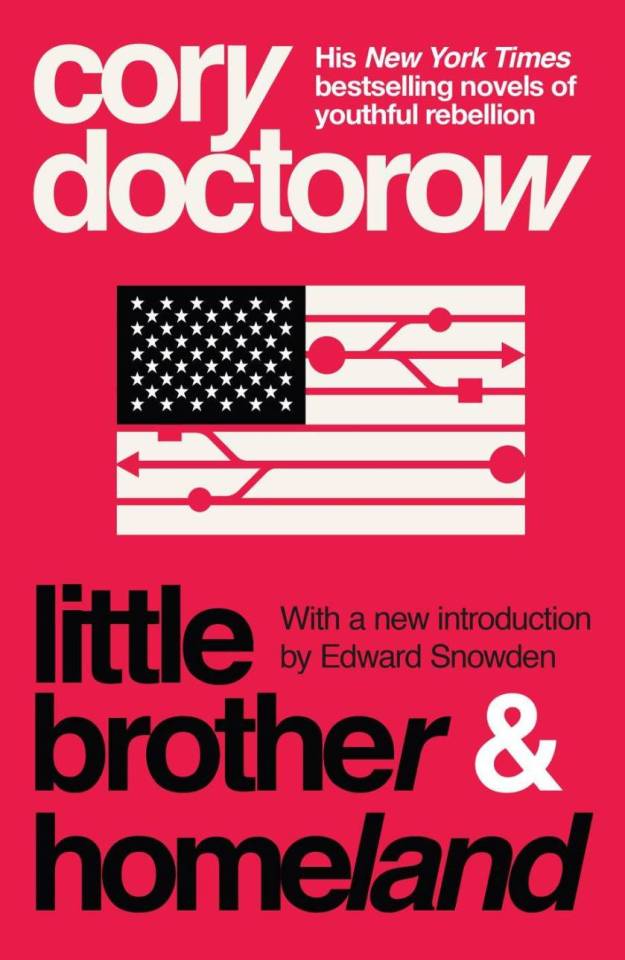
https://us.macmillan.com/books/9781250774583

(In 2017, Staehle also designed all-new covers for my adult backlist)
https://www.tor.com/2017/10/18/cory-doctorow-will-staehle-covers/
The Little Brother books are neither optimistic nor pessimistic about technology: instead, they are hopeful. Hope is the belief that you can materially improve your life if you take action. A belief in human agency and the power of self-determination.
The message of Little Brother is neither "Things will all be fine" nor "We are all doomed."
It's: "This will be so great…if we don't screw it up."
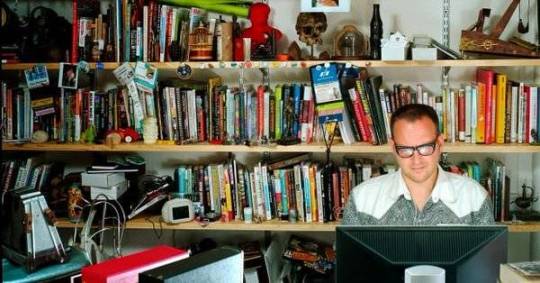
Where I Write (permalink)
I learned to be a writer while my life was in total chaos. Decades later, I have a beautiful office to work in, but I still do my best writing typing hurriedly on subway trains, in taxi-cabs, and airport lounges.
https://www.cbc.ca/arts/finding-comfort-in-the-chaos-how-cory-doctorow-learned-to-write-from-literally-anywhere-1.5489363
My CBC column on where I write is really a primer on how I write: what it takes to be able to write when you're sad, or anxious, or wracked with self-doubt.
Unquestionably the most important skill I've acquired as a writer.
"Even though there were days when the writing felt unbearably awful, and some when it felt like I was mainlining some kind of powdered genius and sweating it out through my fingertips, there was no relation between the way I felt about the words I was writing and their objective quality, assessed in the cold light of day at a safe distance from the day I wrote them. The biggest predictor of how I felt about my writing was how I felt about me. If I was stressed, underslept, insecure, sad, hungry or hungover, my writing felt terrible. If I was brimming over with joy, the writing felt brilliant."

Stream 200+ global news channels (permalink)
TV News is an Android app that pulls like Youtube streams from 200+ global news channels in 50 languages, each manually selected by the app's creator, Steven Clift, whose work I've previously admired.
http://tvnewsapp.com/
You can filter the feeds by country and language and watch them as floating windows that let you continue to use your device while you watch. No registration required, either.
They're shooting for 1000+ channels soon.

AT&T's CEO fired 23,000 workers and gave himself a 10% raise (permalink)
Randall Stephenson is CEO of AT&T. Ajit Pai killed Net Neutrality so that Stephenson could legally slow down the services we requested to extort bribes from us. Then, Trump gave his company a $20B tax cut.
https://www.vice.com/en_us/article/nepxeg/atandt-preps-for-new-layoffs-despite-billions-in-tax-breaks-and-regulatory-favors
Stephenson used that money to raise exec pay, buy back his company's stock to juice its price and to pay off debts from earlier, disastrous mergers. He cut 23,000 jobs and slashed capital spending (America has the worst broadband of any rich country).
https://arstechnica.com/tech-policy/2019/05/att-promised-7000-new-jobs-to-get-tax-break-it-cut-23000-jobs-instead/
After all that, Stephenson congratulated himself on a job well done by giving himself a 10% raise in 2019, bringing his total compensation up to 32 million dollars.
https://arstechnica.com/tech-policy/2020/03/att-ceo-pay-rose-to-32-million-in-2019-while-he-cut-20000-jobs/
I mean the guy earned it. He blew billions of dollars buying Warner and Directv, and then lost billions more on the failed aftermath. If that doesn't warrant a raise, what does?
https://arstechnica.com/information-technology/2019/10/att-loses-another-1-3-million-tv-customers-as-directv-freefall-continues/

Chelsea Manning is free (permalink)
A judge has ordered that Chelsea Manning be released from jail, a day after her latest suicide attempt. She was jailed last March for refusing to testify before a grand jury, held in solitary for two months, then jailed again a few days later, in May, She's been inside ever since.
The judge ordered her release because the Grand Jury had finished its work.
https://www.courtlistener.com/recap/gov.uscourts.vaed.412520/gov.uscourts.vaed.412520.41.0.pdf
It's fantastic to that Manning got her freedom back, but she has been fined $256,000 for her noncompliance. I just donated to her fund:
https://www.gofundme.com/f/help-chelsea-pay-her-court-fines
(Image: Tim Travers Hawkins, CC BY-SA)
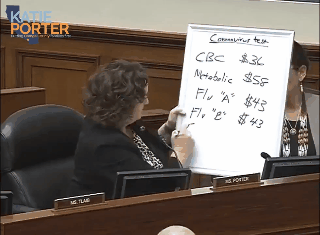
Rep Katie Porter forces CDC boss to commit to free testing (permalink)
I am a huge fan of Rep Katie Porter. Her outstanding questioning techniques and unwillingness to countenance bullshit from the people she questions are such a delight to watch.
Here she is demolishing billionaire finance criminal Jamie Dimon:
https://www.youtube.com/watch?v=2WLuuCM6Ej0
Oh, Ben Carson, you never stood a chance:
https://www.youtube.com/watch?v=sVWy3q2kmNM
Steve Mnuchin always looks like a colossal asshole, but rarely this comprehensively:
https://www.youtube.com/watch?v=78zpa0hQ1aw
I almost feel sorry for this Trumpkin from the Consumer Finance Protection Board as she faces Porter's withering fire.
Almost.
https://www.youtube.com/watch?v=gBaCc5VUHS8
Porter – an Elizabeth Warren protege – doesn't do this to grandstand. Like AOC, she uses her spectacular skills to elicit admissions and get them on the record, and to hold Congressional witnesses to account.
Today, Porter attained a new peak in a short, illustrious career. That's because today was the day she questioned CDC assistant secretary for preparedness and response Robert Kadlec, asking him to clarify Trump's televised lie last night that insurers would pay for Covid-19 testing.
https://twitter.com/RepKatiePorter/status/1238147835859779584
Porter doggedly held Kadlec to account, forcing him to acknowledge that the cost of a Covid-19 test – $1,331 – was so high that many would forego it, and then to admit that these Americans could go on to transmit the disease to others, making it a matter of public concern.
Then she forced CDC Director Robert Redfield to admit – as she had informed him in writing the week before – that the CDC had the authority to simply pay those fees, universally, for any American seeking testing, under 42 CFR 71.30:
https://www.govinfo.gov/content/pkg/CFR-2019-title42-vol1/xml/CFR-2019-title42-vol1-part71.xml#seqnum71.30
Having laid this factual record, Porter insisted that Redfield commit to using that authority. Not to consider it, study it, or consult on it. To use it to help save the country. Whenever Redfield waffled, she reclaimed her time and forced him back on point.
KP: Dr. Redfield, will you commit to the CDC, right now, using that existing authority to pay for diagnostic testing, free to every American, regardless of insurance?
RR: Well, I can say that we're going to do everything to make sure everybody can get the care they need –"
KP: Nope, not good enough. Yes or no?
RR: What I'm going to say is, I'm going to review it in detail with CDC and the department —
KP: No, reclaiming my time [repeats the question]
RR: What I was trying to say is that CDC is working with HHS now to see how we operationalize that
KP: Dr. Redfield, I hope that that answer weighs heavily on you, because it is going to weigh very heavily on me and on every American family
RR: Our intent is to make sure that every American family gets the care and treatment they need at this time in this major epidemic and I am currently working with HHS to see how to best operationalize it.
KP: Excellent! Everybody in America hear that — you are eligible to go get tested for coronavirus and have that covered, regardless of insurance
[Curtain]

Trump's unfitness in a plague (permalink)
In this editorial, Science editor-in-chief H Holden Thorp makes a compelling case that Trump is not capable of leading the American response to Covid-19.
https://science.sciencemag.org/content/367/6483/1169
Trump has spent years denigrating and ignoring science before taking office, and it's only gotten worse, since.
As Thorp writes, "You can't insult science when you don't like it and then suddenly insist on something that science can't give on demand."
His policy track-record is even worse: "deep cuts to science, including cuts to funding for the Centers for Disease Control and Prevention and the NIH…nearly 4 years of harming and ignoring science."
This reminds me of an argument I often have with digital rights activists who attribute bad technology policy to the inability of clueless lawmakers to understand the technical nuance. I think that's wrong. The fact that we're not all dead of cholera, even though there are no microbiologists in Congress proves that you don't need to be a domain expert to make good policy.
Good policy comes from truth-seeking exercises in which experts with different views present their best evidence to neutral adjudicators who make determinations in public, showing their work in explicit, written, public reasoning. These processes are made legitimate – and hence robust and reliable – by procedural rules. The adjudicators – regulators, staffers, etc – are not allowed to have conflicts of interest. Their conclusions are subject to the rule of law, with mandatory transparency and a process for appeal.
It has to be this way: there's no way that – say – a president could be an expert on all the different issues that might arise during their tenure.
This, then, is the problem with inequality and market concentration: it merges the referees with the players. When an industry only has a handful of players, they all end up with common lobbying positions – a common position on what is truth. That's because the C-suites of these five companies are filled with people who've worked at two, three or four of the competitors, and are married to others who've worked at the remainder. They're godparents to one anothers' kids, executors of each others' wills.
There's no way for there NOT to be collusion in these circumstances.
And when an industry is that concentrated, the only people who understand it well enough are those same execs, so inevitably the regulators are drawn from the industry.
That's why Obama's "good" FCC Chair, Tom Wheeler, was a former Comcast lobbyist, and why Ajit Pai, Trump's "bad" FCC chair, is a former Verizon lawyer. Apart from Susan Crawford, there's not really anyone who's not from the top ranks of Big Telco qualified to regulate them.
So many of us saw the photo of Trump meeting with all the tech leaders and were dismayed that they were throwing their lot in with him.
But we should also be aghast that all the leaders of the industry fit around one modest board-room table.
https://techcrunch.com/2016/12/14/donald-trump-meets-with-tech-leaders/
The problem with Trump's Covid-19 response is that he does not believe in a legitimate process with neutral referees. The refereeship, in trumpland, is an open-field auction, a transactional process that works best when it enriches Trump and his party.
The problem of Trump taking charge of the epidemiological crisis of Covid-19 isn't that he doesn't understand science: it's that he doesn't believe in evidence-based policy.
He is part of the cult of "Public Choice Theory," the belief that there is no one who can serve as referee without eventually colluding with the players for their mutual enrichment, a cynical, nihilistic philosophy that holds that there's no point in seeking to govern well. These people project their own moral vacuum onto all of humanity, a kind of cartoon Homo Economicus who is incapable of anything except maximizing personal utility.
For these people, the existence of bridges that don't fall down and water that doesn't give you cholera are lucky accidents, not results of sound policy and careful truth-seeking. They reason that since they would take bribes to poison the water of Flint, so would everyone.
Trump isn't just a non-expert, he's an ignoranamus, but that's not the problem. The problem is that he is a nihilist, someone who doesn't believe that truth-seeking is even possible.
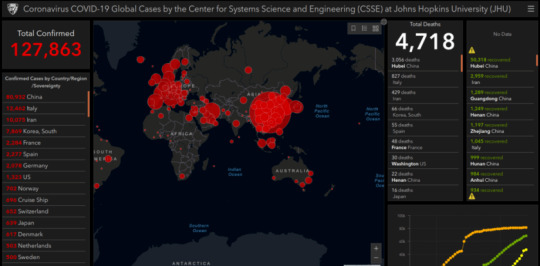
Malware that hides behind a realtime Covid-19 map (permalink)
Hackers have developed a malware-as-a-service that packages up realtime Covid-19 maps with malware droppers that infect people who load them.
https://krebsonsecurity.com/2020/03/live-coronavirus-map-used-to-spread-malware/
This reminds me intensely of Peter Watts's 2002 novel Maelstrom, in which Watts uses his background as an evolutionary biologist to posit an eerily plausible and devilishly clever way that a digital and a human virus could co-evolve.
https://rifters.com/real/MAELSTROM.htm
This has stuck with me! In May 2018, I wrote about it in Locus Magazine:
http://locusmag.com/2018/05/cory-doctorow-the-engagement-maximization-presidency/
Maelstrom is concerned with a pandemic that is started by its protagonist, Lenie Clark, who returns from a deep ocean rift bearing an ancient, devastating pathogen that burns its way through the human race, felling people by the millions.
As Clark walks across the world on a mission of her own, her presence in a message or news story becomes a signal of the utmost urgency. The filters are firewalls that give priority to some packets and suppress others as potentially malicious are programmed to give highest priority to any news that might pertain to Lenie Clark, as the authorities try to stop her from bringing death wherever she goes.
Here's where Watt's evolutionary biology shines: he posits a piece of self-modifying malicious software – something that really exists in the world today – that automatically generates variations on its tactics to find computers to run on and reproduce itself. The more computers it colonizes, the more strategies it can try and the more computational power it can devote to analyzing these experiments and directing its randomwalk through the space of all possible messages to find the strategies that penetrate more firewalls and give it more computational power to devote to its task.
Through the kind of blind evolution that produces predator-fooling false eyes on the tails of tropical fish, the virus begins to pretend that it is Lenie Clark, sending messages of increasing convincingness as it learns to impersonate patient zero. The better it gets at this, the more welcoming it finds the firewalls and the more computers it infects.
At the same time, the actual pathogen that Lenie Clark brought up from the deeps is finding more and more hospitable hosts to reproduce in: thanks to the computer virus, which is directing public health authorities to take countermeasures in all the wrong places. The more effective the computer virus is at neutralizing public health authorities, the more the biological virus spreads. The more the biological virus spreads, the more anxious the public health authorities become for news of its progress, and the more computers there are trying to suck in any intelligence that seems to emanate from Lenie Clark, supercharging the computer virus.
Together, this computer virus and biological virus co-evolve, symbiotes who cooperate without ever intending to, like the predator that kills the prey that feeds the scavenging pathogen that weakens other prey to make it easier for predators to catch them.

Locked-down Siennese sing their city's hymn (permalink)
In times of crisis, we typically pull together, but elite panic's pervasive mythology holds that these moments are when the poors reveal their inner beast and attack their social betters. That libel on humanity is disproved regularly by our everyday experience. As common as these incidents of solidarity are, they still warrant our notice.
The Song of the Verbena is the hymn of the Italian city of Sienna, currently on lockdown.
https://it.wikipedia.org/wiki/Canto_della_Verbena
This video of Siennese people singing their hymn from the windows of their houses, into their empty street, is one of the most beautiful, hopeful things I've seen this week.
Truly, it is a tonic.
https://twitter.com/valemercurii/status/1238234518508777473
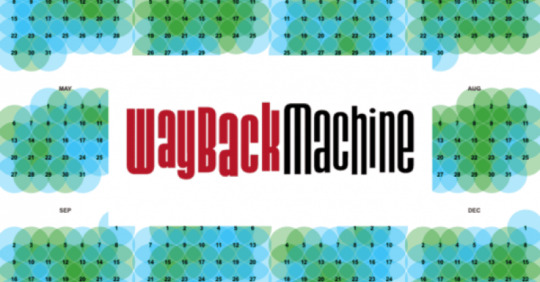
This day in history (permalink)
#5yrsago NYPD caught wikiwashing Wikipedia entries on police brutality https://web.archive.org/web/20150313150951/http://www.capitalnewyork.com/article/city-hall/2015/03/8563947/edits-wikipedia-pages-bell-garner-diallo-traced-1-police-plaza
#1yrago Gimlet staff announce unionization plan following Spotify acquisition https://www.theverge.com/2019/3/13/18263957/gimlet-media-union-spotify-recognition-podcasts
#1yrago With days to go until the #CopyrightDirective vote, #Article13's father admits it requires filters and says he's OK with killing Youtube https://www.golem.de/news/uploadfilter-voss-stellt-existenz-von-youtube-infrage-1903-139992.html
#1yrago Spotify's antitrust complaint against Apple is a neat parable about Big Tech's monopoly https://www.wired.com/story/spotify-apple-complaint-warren-antitrust-issue/
#1yrago A critical flaw in Switzerland's e-voting system is a microcosm of everything wrong with e-voting, security practice, and auditing firms https://www.vice.com/en_us/article/zmakk3/researchers-find-critical-backdoor-in-swiss-online-voting-system
#1yrago McMansion Hell tours the homes of the "meritocratic" one-percenters who allegedly bought their thickwitted kids' way into top universities in the college admissions scandal https://mcmansionhell.com/post/183417051691/in-honor-of-the-college-admissions-scandal

Colophon (permalink)
Today's top sources: Empty Wheel (https://www.emptywheel.net/), CNN (https://cnn.com), Memex 1.1 (https://memex.naughtons.org/), Slashdot (https://slashdot.org).
Hugo nominators! My story "Unauthorized Bread" is eligible in the Novella category and you can read it free on Ars Technica: https://arstechnica.com/gaming/2020/01/unauthorized-bread-a-near-future-tale-of-refugees-and-sinister-iot-appliances/
Currently writing: I've just finished rewrites on a short story, "The Canadian Miracle," for MIT Tech Review. It's a story set in the world of my next novel, "The Lost Cause," a post-GND novel about truth and reconciliation. I've also just completed "Baby Twitter," a piece of design fiction also set in The Lost Cause's prehistory, for a British think-tank. I'm getting geared up to start work on the novel next.
Currently reading: Just started Lauren Beukes's forthcoming Afterland: it's Y the Last Man plus plus, and two chapters in, it's amazeballs. Last month, I finished Andrea Bernstein's "American Oligarchs"; it's a magnificent history of the Kushner and Trump families, showing how they cheated, stole and lied their way into power. I'm getting really into Anna Weiner's memoir about tech, "Uncanny Valley." I just loaded Matt Stoller's "Goliath" onto my underwater MP3 player and I'm listening to it as I swim laps.
Latest podcast: A Lever Without a Fulcrum Is Just a Stick https://archive.org/download/Cory_Doctorow_Podcast_330/Cory_Doctorow_Podcast_330_-_A_Lever_Without_a_Fulcrum_Is_Just_a_Stick.mp3
Upcoming books: "Poesy the Monster Slayer" (Jul 2020), a picture book about monsters, bedtime, gender, and kicking ass. Pre-order here: https://us.macmillan.com/books/9781626723627?utm_source=socialmedia&utm_medium=socialpost&utm_term=na-poesycorypreorder&utm_content=na-preorder-buynow&utm_campaign=9781626723627
(we're having a launch for it in Burbank on July 11 at Dark Delicacies and you can get me AND Poesy to sign it and Dark Del will ship it to the monster kids in your life in time for the release date).
"Attack Surface": The third Little Brother book, Oct 20, 2020. https://us.macmillan.com/books/9781250757531
"Little Brother/Homeland": A reissue omnibus edition with a new introduction by Edward Snowden: https://us.macmillan.com/books/9781250774583
18 notes
·
View notes
Text
Are your children safe online?
Digital security in the context of digital citizenship
The internet is part of human existence as we have come to know it, that is, if you were born after 1990. It has become our primary source of information, a source we trust and defend more so than parents, siblings, friends or teachers. Our reliance on the internet is as profound as our reliance is to electricity and various modes of transport.
As exciting as this new world is, it is an ever changing and dynamic form of media and with this comes uncertainty, fear and insecurity especially as it pertains to children. To understand both the advantages and trappings of such a beast is imperative. Facebook have imposed an age restriction of 13 years of age before someone can have a Facebook account. As we know, children way younger than this have access to ‘surf the web’, it is as loosely managed as a PG rating is for children under the age of 18 when it comes to films or video games.
Children can learn, create and connect in a digital world of possibilities when used in supervised environments, but we need to ensure their safety online? “The insatiable data-collecting vacuum that is the modern internet was not built for kids” (Newcomb, 2018)
The number of children online increases by 175,000 every day, according to UNICEFand children’s digital advertising market is expected to be worth $1.9 billion next year, according to the PwC Kids Digital Advertising Report.
“With the amount of personal information we are placing online through social media sites, banking and online services, it’s important to be aware of how to best protect this information from being accessed. Kids need to learn how to ensure privacy settings are created and maintained, that passwords are strong and not shared with anyone else but their parents, and that they are careful of what they divulge to others online.” (Digital Citizenship, 2018). Thus digital security is imperative.
The age of children online is becoming younger as they are more familiar and accustomed to having technology around them. This fact is reinforced by Ofcom's Children and Parents Media Use and Attitudes reports which found that 46% of 11-year-olds, 51% of 12-year-olds and 28% of 10-year-olds now have a social media profile (Ofcom, 2017).By the time a child turns 13 years old , advertising technology companies will have gathered 72 million data points about them, according to SuperAwesome data.
There is no statistical evidence of the awareness children between the ages of 4 years and 13 years have of the of the dangers that come with using technology and the internet. There is certainly not the emotional maturity to understand the possible dangers.
There is several key dangers which children should be made aware of when they are ‘online’. Firstly, online predictors (people who stalk kids on the Internet), taking advantage of children's innocence and curiosity and, even luring them into dangerous situations and even worse encounters. These people lurk social media platforms and gameing sites that are most popular with kids.
Secondly, children also fall into the trap of contaminating their technology with Malware which is a “computer software that is installed without the knowledge of permission of the victim and performs harmful actions on the computer.”(Usa.kaspersky.com, 2018). This includes stealing personal information from a computer. Cyber criminals often trick children into downloading Malware. A further danger is that many social media sites allow young children to host a public profile. If children’s privacy settings are not correctly activated, the information children publish or post on their profiles will be accessible to hundreds of people. Finally, there is the concern with how easily children can stumble across completely inappropriate content or can easily access adult content. Inappropriate content does not have to be intentionally sourced. Children will often come across inappropriate content by chance; disguised under seemingly innocent URLs, attachments, or even circulated on leading social media sites.
Dylan Collins, Chief Executive of SuperAwesome, a London-based technology company has a solution for the digital safety of kids. Dylan Collins is building kid-safe products for companies, that have accepted to a list of data privacy regulations.Collins is also trying to create and build another internet, one in which children can click, browse and view advertisements safely without having personal data collected. “SuperAwesome powers the kid’s digital media ecosystem. Our kidtech is used by hundreds of brands and content-owners to enable safe, digital engagement with the global under-13 audience. Built specifically to ensure total digital privacy for children, our technology footprint reaches almost half a billion kids across North America, Europe and APAC.” Collins stated that the company has benefitted from public understanding of the internet and what it can mean for kids who are spending a lot of time online.
https://www.superawesome.com/
“Far too many companies turn a blind eye to the fact that advertisers claim to be complying with COPPA when they're not,” Barrett said. “I think the objective of building safer advertising products for kids is laudable, or at least certainly better than just hoping to fly under regulators' radar.”
SuperAwesome currently has over 300 brand partners, such as Mattel, Hasbro, Nintendo and Warner Brothers, which help promote their products as well as comply with children’s privacy laws and adhere to SuperAwesome’s policy to collect zero data across apps, games, platforms and advertisements. Such companies are seeing positive returns from the marketing campaigns they run. This demonstrates the support parents are providing so that their children will be protected.With television viewing decreasing, SuperAwesome reaches more than 500 million new users each, which include PopJam, a platform where developers can build experiences that allow kids to like, comment and share content, and Kids Web Services, which simplifies the process of building apps.
Collins credits the shift to digital for SuperAwesome’s growth in the past year. The company said it projected to double its revenue in 2018 and has its sights set on going public in 2020.
“There needed to be some sort of company to help both sides overcome that friction,” said Hussein Kanji, founding partner at Hoxton Ventures, a London-based firm that was an early investor in SuperAwesome.
SuperAwesome offers companies a platform which allows them to get an accumulated view of how advertisements function, without any individual data from the children they engaged with.
“In comparison, let’s say, if you were running a campaign targeted at adults, you would be able to go in and literally track a person, in terms of if they clicked on an ad and went to the site, and if they eventually spent some money on Amazon,” Collins said. “Our technology ensures that nobody can capture that kind of data on children.”
SuperAwesome have produced a way in which kids can browse the web safely and have also created an alternative source to YouTube.The company issued its own embeddable video player. Alongside this video player, the company created a SafeFam certification for YouTubers who create content aimed at children, allowing them to go through a certification process to earn a SafeFam badge which they can in turn share on their profile. This is an incredible statement in relation to the character of the YouTuber and one which companies targeting children will be drawn to work with.
“YouTube has had to put out a series of fires over the past two years, including the discovery of inappropriate content being marketed using kid-friendly keywords and concerns inappropriate ads being matched with children’s content. Earlier this year, more than 20 advocacy groups signed a letter to the Federal Trade Commissionalleging YouTube is in violation of COPPA.”Collins said he expects the company to continue to grow as regulations continue to evolve.
“There's a huge amount of change that's going on,” he said. “All of our technology is not only providing compliance for today, but we're ensuring that they're going to be compliant tomorrow and next year and keeping up with the latest requirements.” Dylan Collins said that “I wouldn't say we're growing based on their disadvantage, but I think certainly it is making parents much more cognizant of what is happening to children behind the scenes when they're online.”
In conclusion, SuperAwesome opens a new world for your children to safely be educated and enlightened online. A company is trying to build a kid-safe internet that stops data collection and ad tracking, moves that come amid mounting scepticism about the data practices of tech giants.
Bibliography
BBC News. (2018). Children are being 'datafied from birth'. [online] Available at: https://www.bbc.co.uk/news/education-46112665
Newcomb, A. (2018). A kid-friendly internet? This company is trying to build one. [online] NBC News. Available at: https://www.nbcnews.com/tech/tech-news/kid-friendly-internet-company-trying-build-one-n950491
Digital Citizenship. (2018). Nine Elements. [online] Available at: http://www.digitalcitizenship.net/nine-elements.html
Usa.kaspersky.com. (2018). [online] Available at: https://usa.kaspersky.com/resource-center/threats/top-seven-dangers-children-face-online
Superawesome.com. (2018). About Us | SuperAwesome. [online] Available at: https://www.superawesome.com/about-us
Ofcom. (2017). Children and parents: media use and attitudes report 2017. [online] Available at: https://www.ofcom.org.uk/research-and-data/media-literacy-research/childrens/children-parents-2017
Superawesome.com. (2018). Kid-Safe Technology Partner | SuperAwesome. [online] Available at: https://www.superawesome.com
Images 1:https://www.heart.net/blog/just-for-fun/gadgets-and-apps/what-is-good-screen-time/
Image 2: https://superawesome.workable.com/
0 notes